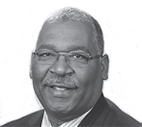
DANIEL McCLOUD
Certain words evoke certain feelings and generate specific thought processes. For instance, when you hear the word marginalized, underrepresented, and at-risk. One immediately tends to think, poor, people of color. But can’t anyone be marginalized, underrepresented, and viewed as at-risk when not provided with adequate resources? Terms such as these lead people to stereotype and incorrectly reason that these must be individuals who are lazy, criminal, and uneducated. Perhaps we should redefine this terminology. What if when we hear these words, instead of them invoking negative stereotypes about people of color, they instead remind us of the inequities and oppressive systems that are present in America. We must realize that these inequities are the reasons for the labeling or branding of groups of people, unjustly based on their skin color and not rightfully because of social injustice.
Instead of invoking victim-blaming and apathetic behavior, when we hear these words, we instead seek to become more empathetic, attempting to get inside another person’s feelings and worldview. What if these words then lead us to seek self-knowledge and to take inventory of our own implicit biases and prejudices. To redefine these words also requires a level of respect for all people, particularly those who may be different than us. According to Wiggins & McTighe (1998), respect can lead to open-mindedness regarding the views of others.
Yes, words and language are powerful, but actions are even more powerful. We must choose to change the written narrative that has, for years, been used as a tool of oppression. How we describe the human condition has always been critical to identifying injustice and moving towards solutions. As the late Toni Morrison once said, “We die. That may be the meaning of life. But we do language. That may be the measure of our lives.”

Recent Comments